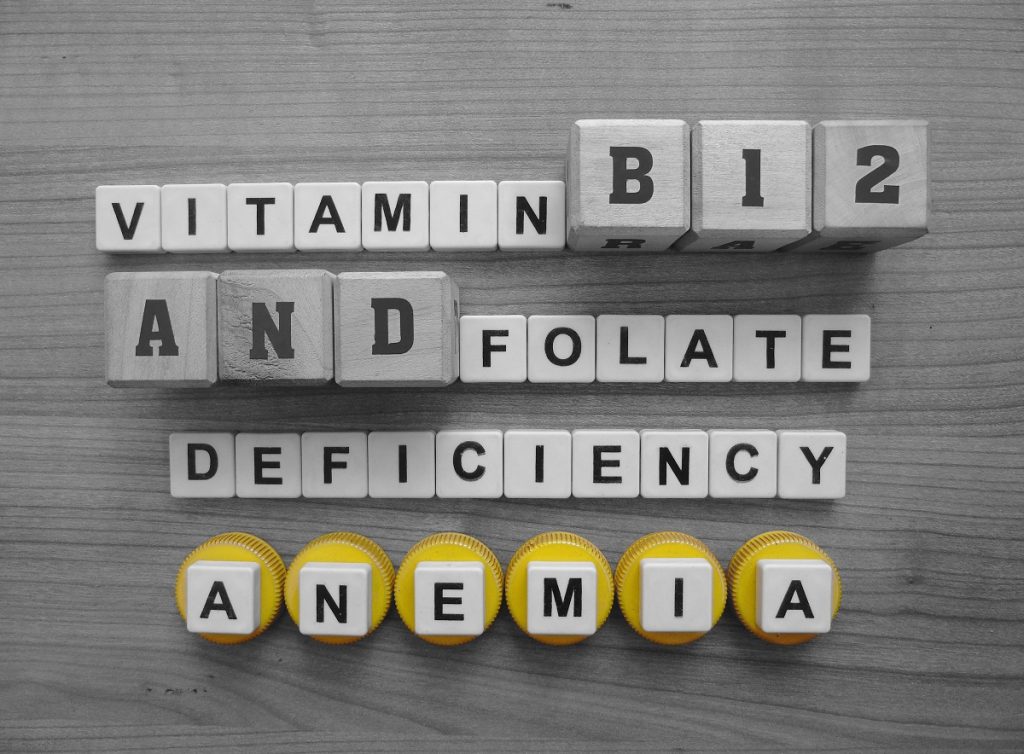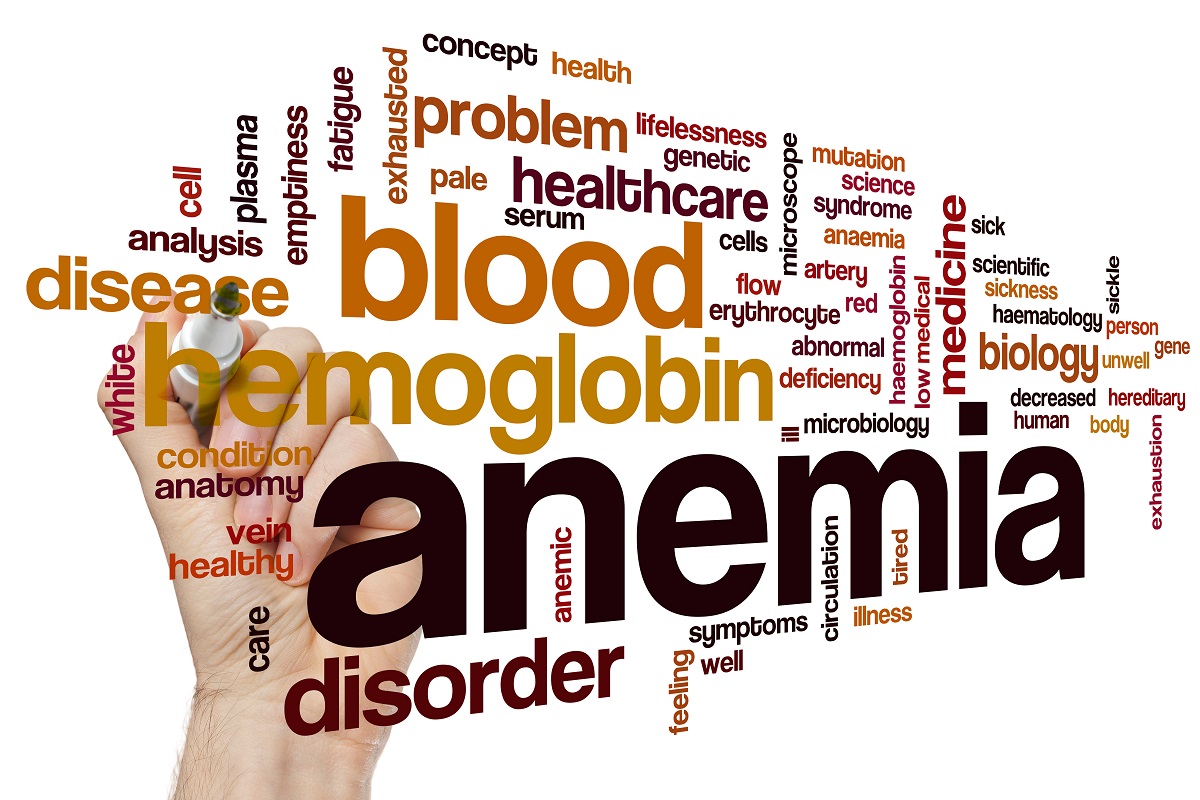When the body produces too few red blood cells, the result is anemia. When senior have anemia that results from vitamin deficiencies, chronic diseases, and other causes, the result can be the type of confusion and memory loss common in dementias. Anemia can cause the symptoms, but scientists are still studying the relationship.
About 11% of the older adult population suffers from anemia. It is one of the most prevalent comorbidities in people above the age of 65. In recent studies, this condition is also often linked with dementia.
What Is The Cause Of Anemia?
Anemia — a condition where the body has lower-than-normal red blood cells (RBC) and hemoglobin — affects about a third of the world’s population. Hemoglobin is a protein in RBC that carries oxygen, and the lack of it can impair several bodily functions.

Anemia can be caused by nutritional deficiencies (mainly iron), an existing chronic disease (such as cardiovascular and chronic kidney disease), and genetics.
It can also be traced to excessive blood loss and certain conditions like aplastic anemia (where the bone marrow isn’t producing enough new RBCs) or hemolytic anemia (where RBCs are destroyed faster than the production of new ones).
A study published in Neurology shows that anemia is one of the risk factors for dementia, a group of brain disorders marked by cognitive decline. This significant impairment in thinking, reasoning, memory, and communication skills can also be attributed to some deficiencies.
Iron Deficiency
As stated, anemic people have an increased risk of dementia. And lack of iron — a mineral needed to form hemoglobin — is the most common culprit behind anemia. Iron deficiency can be caused by diets low in iron, gastrointestinal tract abnormalities, blood loss, and body changes (e.g., changes during pregnancy and lactation).
B Vitamins Deficiency
In a research conducted by the University of Wisconsin, about 40% of geriatric memory care patients showed at least one kind of vitamin deficiency. Researchers specifically looked for Vitamin B12, B1 (thiamin), B6, B9 (folate), and D, which play vital roles in brain health.

Among the B vitamins, the lack of vitamin B12 is considered most likely to influence the development of dementia.
Vitamin D Deficiency
A population-based study involving 294,000 people aged 37 to 73 noted a lack of Vitamin D has a significant association with dementia — it increases the chance of developing this condition to 54%. Boosting Vitamin D levels can prevent cognitive impairment as people grow older.
Certain nutritional deficiencies can also be linked to a higher body mass index (BMI), which also increases the risk of dementia. This study’s meta-analysis shows that midlife obesity (and underweight) drives overall dementia risk upward.
What Are The Symptoms Of Anemia?
The World Health Organization considers the prevalence of anemia a “serious global public health problem.” In the United States, about 3 million individuals are anemic.



Affected people exhibit the following symptoms:
- Fatigue and weakness
- Pale or yellow skin complexion
- Shortness of breath (dyspnea)
- Fast or Irregular heartbeat (arrhythmia)
- Headaches, dizziness, and lightheadedness
- Pounding sound in the ears (pulsatile tinnitus)
- Cold hands and feet
- Soreness in the tongue or mouth
- Fever
- Chest and abdominal pain
- Dark urine
Specific types of dementia also cause varying symptoms. If someone has iron-deficiency anemia, they may also experience brittle nails, poor appetite, or unusual cravings (e.g., ice, starch, dirt, paper).
Can Anemia Cause Confusion And Memory Problems In Elderly?
Researchers are still studying the exact mechanisms that link anaemia and dementia — two conditions that are commonly found in older people.
Nonetheless, several previous studies (published in esteemed journals like International Psychogeriatrics or Int Psychogeriatr) already support that anemia increases one’s likelihood of developing dementia.

However, note that it’s not just low hemoglobin levels that increase the risk of dementia. High levels of this protein are also associated with it.
Dementia disorders happen when brain cells or neurons die, and networks between them break down. This causes patients to experience cognitive, emotional, social, and functional regression.
People with dementia may get confused and have memory-related issues. For example, they may have a hard time recalling recent events. In the latter stages, they may even lose the ability to recall important details like the names of a specific person or if a loved one has already passed away.
Dementia-affected individuals also display behavioral and personality changes.
What Is The Difference Between Dementia And Alzheimer’s?
Dementia’s incidence rate is 10 million new cases per year.
In healthcare jargon, dementia is a broad term that covers a group of brain disorders wherein patients experience a cognitive decline to the point that it affects their everyday life.
It’s not to be confused with Alzheimer’s disease — which is only one of the diseases under this umbrella term. It makes up about 60 to 80% of dementia cases.
In people with Alzheimer’s, their brain shows with Amyloid-β biomarkers, which affect their cognitive function. Specifically, it impacts a part of the brain responsible for learning. It’s why Alzheimer’s patients will have trouble with their memory, thinking, and reasoning skills.
While it’s not a part of the normal aging process, the risk of Alzheimer’s increases with age. This demographic analysis shows that dementia in women is less preventable than in men. African Americans and Hispanics are also more likely to have it than white Americans.
Other types of dementia include vascular dementia (caused by stroke and conditions that restrict blood flow to the brain), Lewy body dementia (caused by abnormal protein deposits), and frontotemporal dementia (which affects the frontal and temporal lobes of the brain).
Is Anemia Linked To Alzheimer’s?
In a prospective cohort study involving older people, having a low hemoglobin concentration leads to a 41% increased risk of Alzheimer’s.
While the exact mechanisms are still being researched, experts theorize that anemia causes chronic hypoxia in brain cells (hypoxia refers to low oxygen levels) and significantly reduces one’s aerobic capacity.
When someone has anemia, vasodilation or the widening of cerebral blood vessels occurs. It does so to increase blood flow to recompense the reduction in the levels of hemoglobin. Once this kind of adjustment fails, the brain’s blood flow becomes inadequate, affecting cognitive performance.
A cross-sectional cohort study by Jeong et al established ties between anemia and dementia incidence after adjusting baseline factors like sex, BMI, depression, and hypertension.
They also found that chronic hypoxia can accelerate the formation of Amyloid-β plaques.
In a separate study by Faux et al, the authors found changes in systemic iron, folate, and thyroid metabolism among Alzheimer’s patients. These are seen to influence hemoglobin production in the affected individuals negatively.
In another theory, researchers posit that having low erythropoietin receptors in the brain can cause cognitive decline. These neuroprotective components play a vital role in preventing hypoxia and stroke.
Furthermore, research shows that white matter hyperintensity volume is linked to a greater risk of Alzheimer’s. This study shows that anemia has something to do with the progress of this hyperintensity.
What Is Known About The Relationship Between Anemia And Dementia?
Having low hemoglobin levels is one factor that contributes to the prevalence of dementia. It increases one’s tendency to develop some form of dementia by 34%. In community-dwelling seniors, researchers also determined that anemia increases dementia and cognitive decline risk.
The likelihood increases when a patient has other comorbidities. For instance, anemia can cause cognitive disorders and dementia in people with end-stage renal disease.
However, the risk of developing one of the most common, burdensome, and costly disorders in the elderly can be reduced with interventions such as iron supplementation.


